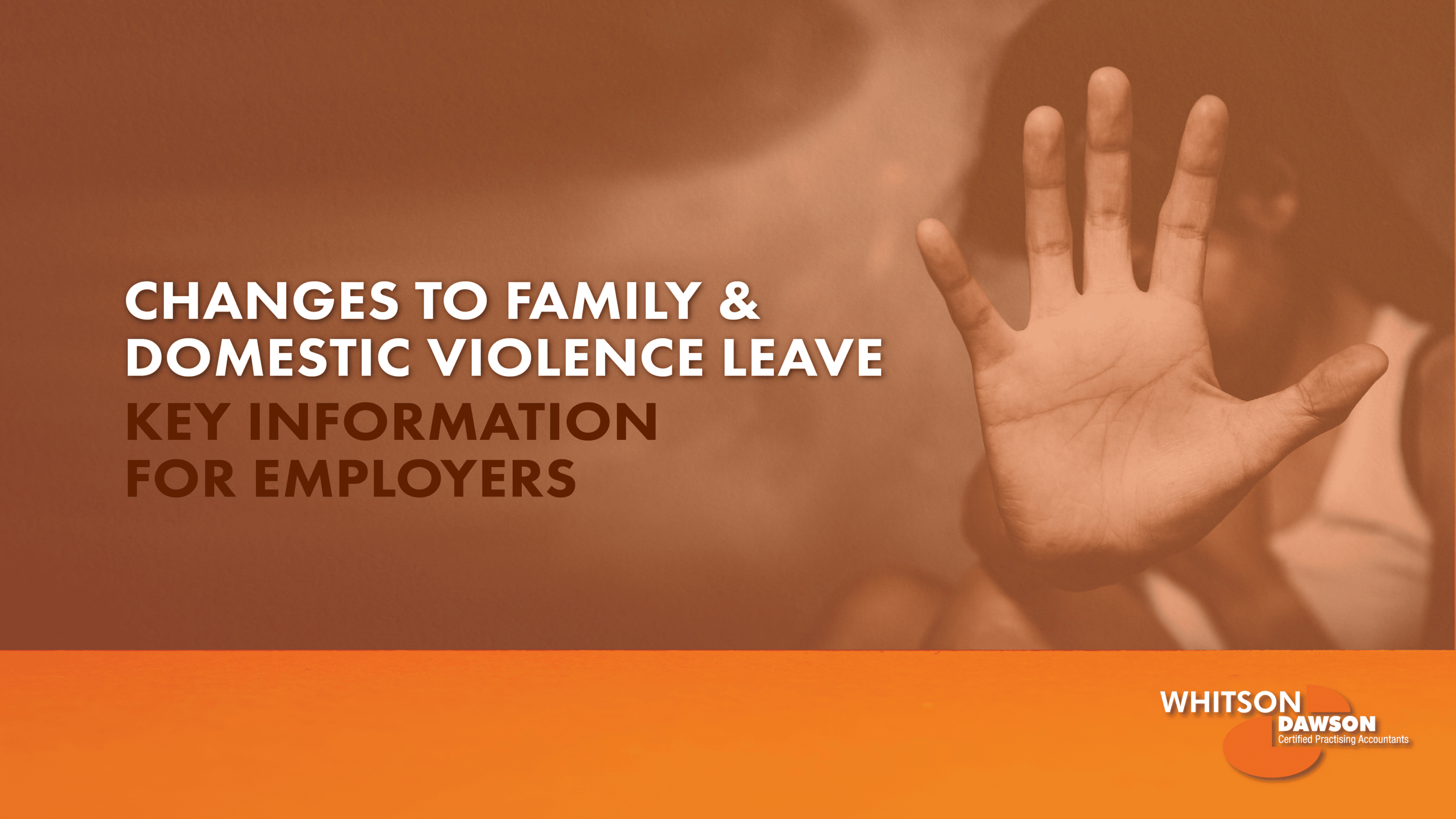Key Information For Employers
The Australian government has recently introduced a new policy providing employees with access to paid family and domestic violence leave. This is a significant development for employers as it acknowledges the impact that domestic violence can have on an individual’s ability to work, and provides support for those who may be experiencing it.
It is important for all employers to be aware of the introduction of the Fair Work Amendment (Paid Family and Domestic Violence Leave) Act 2022.
Domestic violence is a pervasive issue that can have a profound impact on an individual’s physical, mental, and emotional well-being. It can also affect an individual’s ability to perform their job duties, leading to increased absenteeism and decreased productivity. By providing employees with access to paid family and domestic violence leave, the government is recognizing the importance of addressing this issue and providing support to those who may be impacted.
Who is entitled to paid FDV leave?
All employees (including full-time, part-time and casual employees) will be entitled to 10 days’ paid FDV Leave. The 10 days’ paid leave is available upfront at the commencement of each year. However, the entitlement does not accumulate from year to year.
Can employers require the employee to provide evidence?
Employers can require the employee to provide evidence to support the FDV leave request – which could include documents issued by the police, court or family violence support services.
When will these changes take place?
1 February 2023, for employees of non-small business employers (employers with 15 or more employees on 1 February 2023)
1 August 2023, for employees of small business employers (employers with less than 15 employees on 1 February 2023).
Employees will continue to be entitled to 5 days of unpaid family and domestic violence leave until they can access the new paid entitlement.
As an employer, it is important to familiarize yourself with the details of this new policy, understand your obligations in providing this leave to your employees and create a supportive and safe working environment for those who may be impacted by domestic violence. This can include providing education and training to managers and employees, implementing policies and procedures to address and prevent domestic violence, and providing support and resources to employees who may be impacted.
Employers can also play a critical role in breaking the cycle of domestic violence by providing support to employees who may be experiencing it. This can include providing flexible working arrangements, offering counselling services and providing financial assistance.
Do I Need A Bookkeeper Or An Accountant?
The answer to this question depends on the needs of your business. If you simply need someone to keep track of your financial transactions and reconcile your bank statements, then a bookkeeper will suffice. However, other financial aspects of business are more complex and require an accountant.
If in doubt about whether a bookkeeper or an accountant would suit your needs best, look for an accounting service that also offers bookkeeping. This will ensure a seamless integration between your financial records and the more complicated elements of business such as budget development. At Whitson Dawson, we offer a wide variety of accounting and bookkeeping services including taxation, business advice, auditing and more. Contact us via our website for more information or call us today on (07) 4957 2985 to discuss your needs and book an appointment with one of our professionals.







Recent Comments